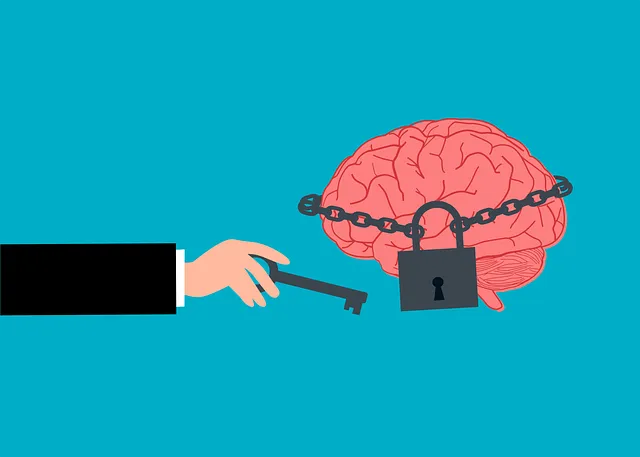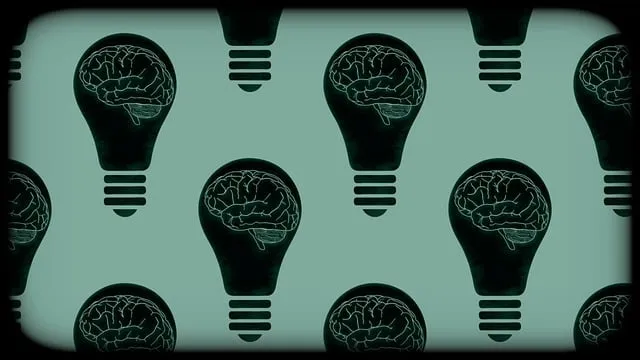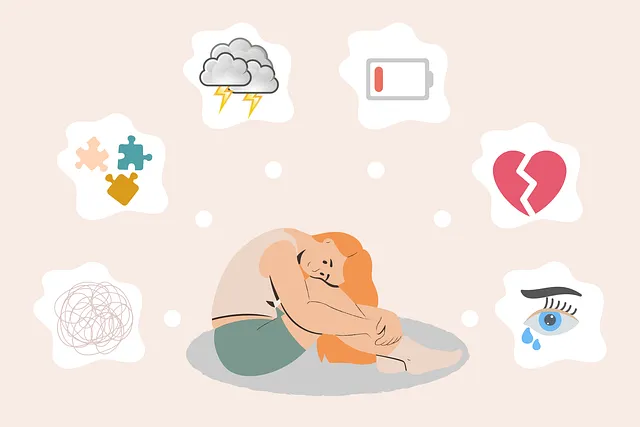Arvada Kaiser Permanente psychiatry offers powerful group facilitation for enhanced mental wellness support. Skilled facilitators create nurturing environments, employing techniques like active listening and structured activities to reduce stress and foster emotional intelligence. They navigate diverse personalities, ensure every member feels respected, and involve participants in policy advocacy. Clear goals, icebreakers, and fair moderation ensure productive sessions, while assessment tools measure program effectiveness, continuously enhancing mental wellness journeys within the Arvada Kaiser Permanente psychiatry community.
In today’s digital era, mental wellness group facilitation techniques play a pivotal role in enhancing support for individuals seeking help. This article explores effective strategies employed by professionals at Arvada Kaiser Permanente Psychiatry. We delve into understanding group facilitation, the unique role of facilitators, and engaging techniques to create safe, inclusive spaces. Additionally, we discuss session management, assessment tools, and measuring the impact of these sessions, providing valuable insights for mental health practitioners.
- Understanding Group Facilitation in Mental Health Support
- The Role of a Facilitator at Arvada Kaiser Permanente Psychiatry
- Engaging Techniques to Foster Safe and Inclusive Spaces
- Strategies for Effective Group Session Management
- Measuring Success and Impact: Assessment Tools for Group Facilitation
Understanding Group Facilitation in Mental Health Support

Group facilitation plays a pivotal role in enhancing mental wellness support, offering a collaborative and nurturing environment for individuals seeking guidance. This dynamic approach, often employed by Arvada Kaiser Permanente psychiatry professionals, leverages the power of collective sharing and peer-to-peer learning to foster healing and growth. By creating safe spaces where members feel comfortable expressing their thoughts and experiences, facilitators enable participants to build emotional intelligence, a key component in navigating life’s challenges.
Effective group facilitation goes beyond mere discussion; it involves skilled navigation through diverse personalities and perspectives. Facilitators employ techniques tailored to stress management and burnout prevention, ensuring each member feels heard, respected, and valued. This supportive dynamic not only strengthens individuals’ coping mechanisms but also cultivates a sense of belonging, vital for maintaining mental health and overall well-being.
The Role of a Facilitator at Arvada Kaiser Permanente Psychiatry

At Arvada Kaiser Permanente Psychiatry, facilitators play a pivotal role in creating supportive environments for mental wellness groups. They act as guides, fostering open dialogue and ensuring every member feels heard and respected. Through effective listening and thoughtful questioning, facilitators encourage participants to share their experiences, promote understanding, and build empathy among group members. This empathetic approach not only enhances the therapeutic process but also empowers individuals to develop coping strategies for managing stress and anxiety.
In facilitating these groups, professionals at Arvada Kaiser Permanente Psychiatry employ various techniques, including Stress Reduction Methods and Empathy Building Strategies, tailored to address specific mental health concerns. They actively involve participants in discussions around Mental Health Policy Analysis and Advocacy, encouraging active engagement in shaping mental wellness initiatives within the community. This collaborative approach ensures that group members not only gain valuable insights but also develop a sense of agency in their journey towards improved mental health.
Engaging Techniques to Foster Safe and Inclusive Spaces

Creating a safe and inclusive environment is paramount for effective mental wellness group facilitation. Techniques such as active listening, where facilitators reflect back participants’ sentiments to foster understanding and empathy, can significantly enhance group dynamics. This practice ensures every voice is heard and valued, promoting open communication. Additionally, establishing clear boundaries and ground rules at the outset helps set expectations, encouraging respect and confidentiality among members.
At Arvada Kaiser Permanente psychiatry, facilitators often employ structured activities like guided meditations or creative expression exercises to reduce stress and promote relaxation. These engaging techniques not only create a calming atmosphere but also serve as valuable tools for conflict resolution. By incorporating interactive elements from the Mental Wellness Podcast Series Production, facilitators can make sessions dynamic and memorable, making it easier for participants to relate and connect with one another.
Strategies for Effective Group Session Management

Effective group session management is key to fostering a safe and productive environment at Arvada Kaiser Permanente psychiatry. Facilitators should begin by establishing clear goals and agendas, ensuring every participant understands the purpose and expected outcomes. This sets a structured tone, particularly beneficial for individuals dealing with anxiety or uncertainty. Utilizing icebreakers and ground rules can also help members feel more at ease and encourage active participation from all.
During sessions, consistent and fair moderation is crucial. Facilitators should model desired behaviors, such as active listening, open communication, and empathy. They must be adept at managing conflicts using evidence-based techniques like conflict resolution methods and stress reduction strategies. Regularly assessing group dynamics and individual needs allows for timely interventions, ensuring a supportive atmosphere where members can share openly without fear of judgment or escalation, enhancing the overall therapeutic experience.
Measuring Success and Impact: Assessment Tools for Group Facilitation

Measuring success and impact is a crucial aspect of group facilitation, allowing mental health professionals to assess the effectiveness of their programs. At Arvada Kaiser Permanente psychiatry, various assessment tools are employed to gauge progress and outcomes in group settings. These tools range from standardized questionnaires to observer-rated scales, all designed to capture changes in participants’ symptoms, attitudes, and behaviors.
One commonly used method is self-report assessments where individuals rate their own levels of distress, mood, and well-being before and after the facilitation period. Additionally, facilitators can utilize structured interviews or focus groups to gain deeper insights into participants’ experiences, particularly when exploring topics like Depression Prevention, Emotional Intelligence, and Self-Awareness Exercises. These qualitative methods provide valuable information on the group’s dynamics, facilitators’ skills, and areas for improvement, ensuring continuous enhancement of mental wellness programs.
Group facilitation plays a pivotal role in enhancing mental wellness, as exemplified by the practices at Arvada Kaiser Permanente Psychiatry. By employing engaging techniques and effective session management strategies, facilitators create safe and inclusive spaces that foster meaningful connections and support. Utilizing assessment tools allows for measuring the impact of these sessions, ensuring continuous improvement in group facilitation techniques. This holistic approach not only benefits individual participants but also contributes to a broader mental health tapestry within the community served by Arvada Kaiser Permanente.






